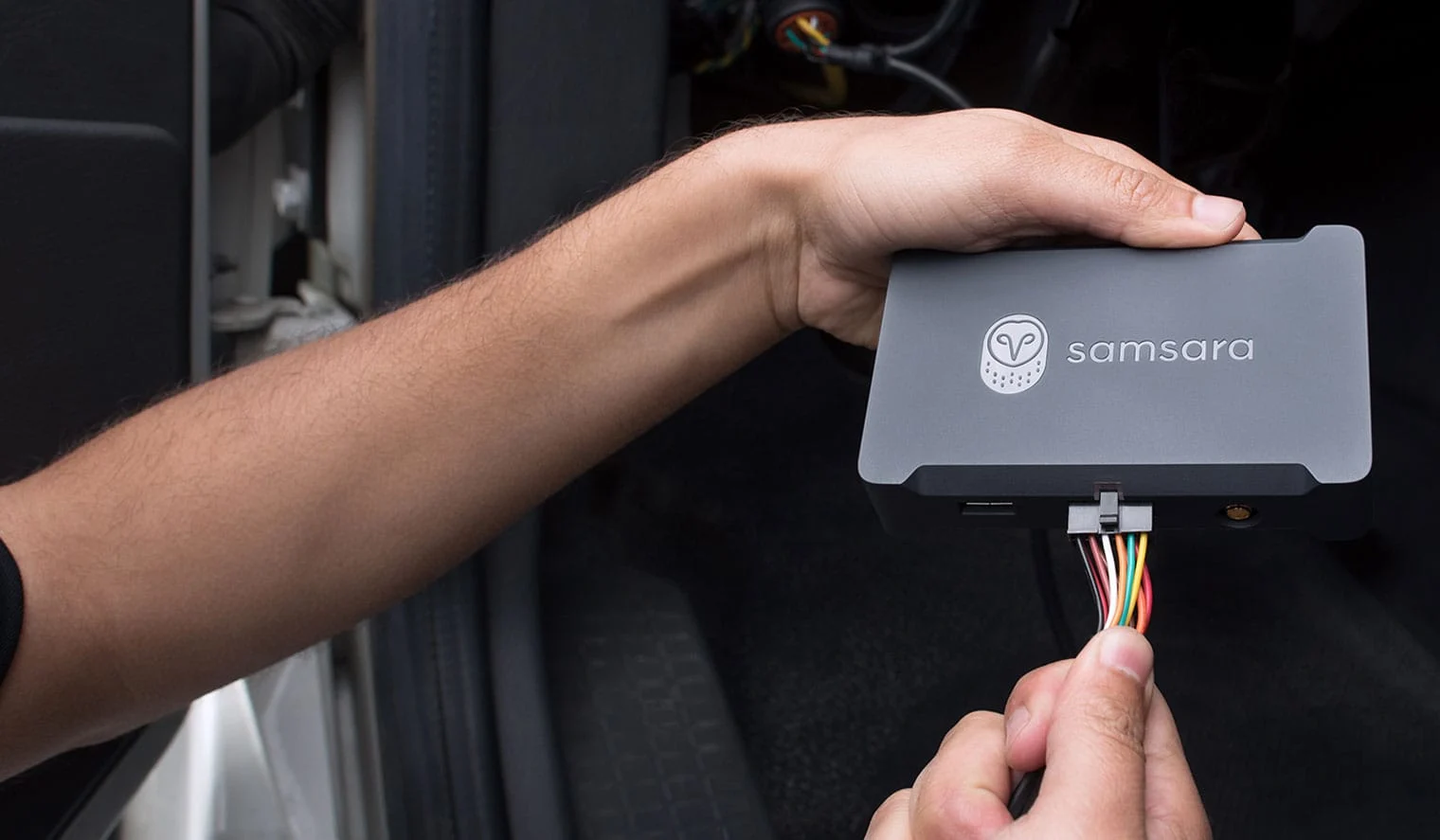Company News
Meet the Industrial Team, Samsara's 'Startup within a Startup'
October 25, 2019

Get the latest from Samsara
Subscribe nowThis month, we celebrated a brand new office for Samsara’s Industrial team. Samsara’s Industrial team functions as its own organization within Samsara—a sort of ‘startup within a startup.’ While most of the Samsara team focuses on modernizing fleet operations—helping our transportation customers to reduce accidents, decrease fuel usage, and create more efficient workflows —this team focuses on modernizing industrial operations for organizations from utilities to manufacturers.
Our Industrial team is nearly two years old and has grown significantly in the last year. Comprised largely of engineering, sales, and product roles, the team is led by VP and GM Pete Atkin. We had a chance to chat with him about the team’s progress as well as what lies ahead. Read on to learn more about how Pete’s background in sustainability consulting uniquely positions him to lead and grow the team, what the team is up to, and the impact the Industrial product is already having for customers big and small.
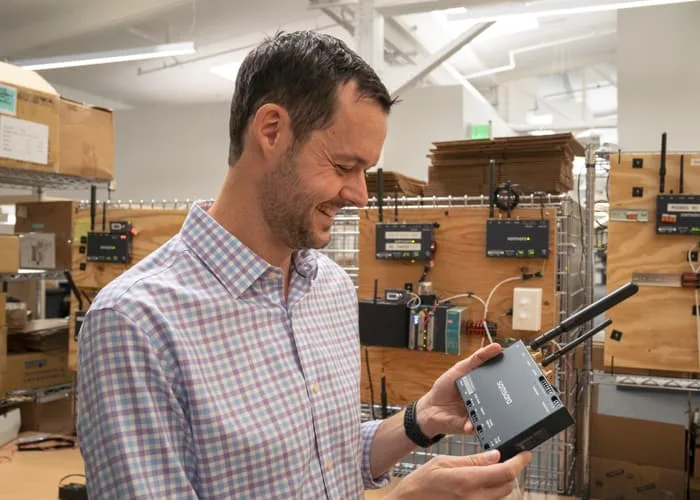
1. Congratulations on the big move! I know it’s been a very exciting year for the Industrial team. As the team’s leader, how would you describe what the Industrial team does? What problem are they trying to solve?
In one sentence, the Industrial team is building hardware and software to help digitize manual processes for the industrial world. Many industrial operations run off of traditional, complex systems that give operations managers insights into everything from energy use to pump levels in water or oil tanks. These systems are often antiquated, costly, and near impossible to pull actionable data from. Samsara saw an opportunity to bring cutting-edge tech to these customers and build a system that would not only be robust and scalable, but simple to use.
Though we’ve grown a lot this year, we’re still at the very early stages of what's possible. The industrial automation market is a $100B dollar market—we have a lot of room to run and there's a number of high impact problems to solve for our customers.
2. Who is a part of the Industrial world?
Samsara's industrial products solve operations pain points across manufacturing, energy companies, utilities, and a range of other industrial customers with the goal of improving efficiency, reducing equipment downtime, and simply giving customers better visibility into their operations. This ultimately helps businesses increase output and save money.
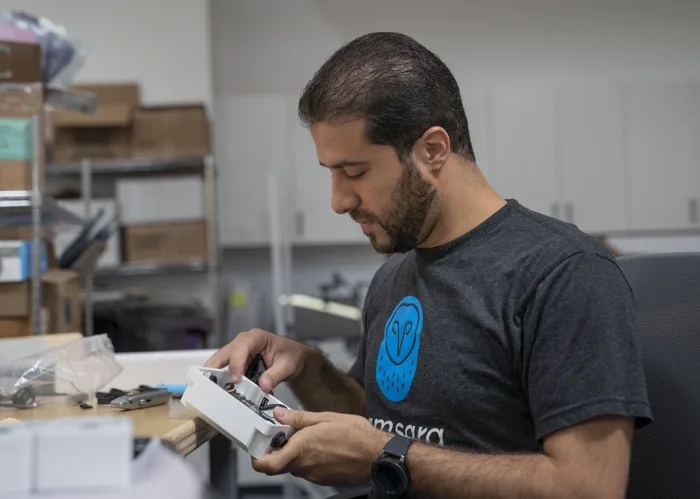
This first year has given us an understanding of the landscape, and we have seen significant market interest in our initial products—we know customers are excited about the value proposition we bring to the table. But also, we've created a strong roadmap of what to build over the next couple of years. From an engineering perspective, there’s really no shortage of interesting problems that we're going to be working on.
3. How do you think your previous roles helped prepare you for the work you’re doing now at Samsara?
I spent a number of years as a management consultant working with big industrials around energy, sustainability, and efficiency. I did a lot of thinking about how to help companies operate more efficiently, which would often help their bottom line and operational organization. In consulting you quickly learn that everything starts and ends with the customer. That philosophy has stayed with me—when it comes to customers, every product must solve an acute set of pain points and always add value.
After that, I spent seven years at Cisco Meraki building a technology organization. The idea of putting both of those past lives together into this role was really compelling.
4. You spent years as a management consultant focused on efficiency and sustainability; how do you see the Industrial products bringing those sustainability goals to life?
It’s interesting—our primary conversations with customers are about reducing their operating costs, improving efficiency, and increasing production throughput. But if you step back and think about it, the industrial sector uses about 1/3 of the world’s energy, and is responsible for about 1/3 of the world’s carbon emissions. These are customers whose energy bills are hundreds of thousands—if not millions—of dollars per month.
If we can give them real-time visibility into how their assets and their operation is running, it allows them to improve their energy efficiency, replace inefficient equipment, reduce trips to remote sites, and streamline their processes—very high impact changes. Our products tend to produce a win-win; they help our customers improve their operational efficiency while also helping them reduce their environmental impact.

Similarly, with our Machine Vision product we identify product defects in real time which allows our customers to stop production before they create hundreds or thousands of defective items that need to be re-worked or thrown out.
5. What is the team working on right now?
There are three areas of the product I'm super excited about right now.
Machine Vision: This is a smart camera for quality control that you put on the manufacturing production line to identify defects in real time—think misprinted labels on a pharmaceutical product or improperly assembled automotive components. What customers have loved about this product is, with the power of cloud-management and easy to install hardware, not only is the system easier to install and use, but it improves quality assurance in a cost-effective way.
Industrial Control: Our cloud-managed Industrial Controllers provide real-time visibility into existing industrial assets—such as pumps, motors, and sensors—regardless of where they are located. We have simplified the architecture so you can connect the controller and immediately see data, like tank level or tank flow, on a laptop or mobile device from anywhere. This is a dramatic cost and time savings for an operations manager who previously had to invest in a complex, multi-million dollar legacy solution, or had to hire employees to physically visit every site to collect data from devices.
The Industrial Controller is also a PLC (programmable logic controller), which means operators can program the device to not only monitor sites but also control industrial processes automatically—for example, the PLC can turn a pump on or off based on tank level. This opens up major opportunities to reduce costs and streamline operations without human intervention.
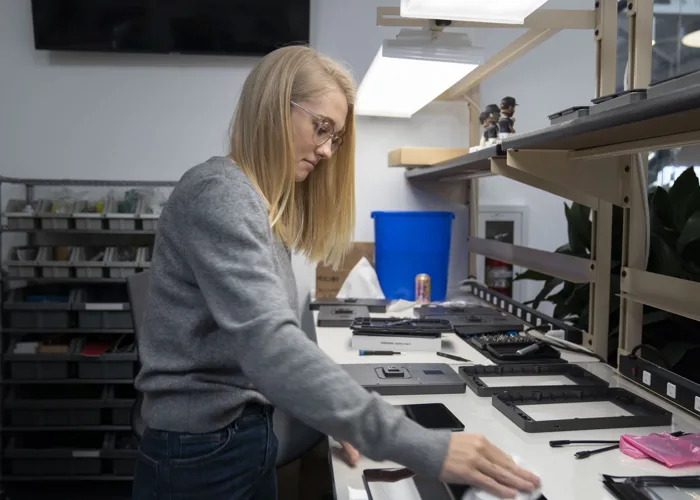
Manufacturing Production Analytics: The third product solution that we're focused on is providing manufacturers with production analytics. This is software that manufacturers can use to get real-time production visibility and understand their equipment uptime, downtime, and overall efficiency—something incredibly valuable to manufacturers when a few minutes to an hour of downtime can equate to tens or hundreds of thousands of dollars. With production analytics, manufacturers can understand sources of unplanned downtime to optimize their process.
6. You just celebrated your one year anniversary at Samsara—congratulations! What did the team look like when you started?
When I started a year ago, we were twenty people focused on industrial, and it was sort of a loose coalition of sales reps and a handful of engineers. We were spending a lot of time with customers and our early-stage products were starting to see real traction in the market.
In the past year, we've solidified this into its own division, or sort of mini-company within Samsara. We scaled out our teams and launched several new products.
7. How has the Industrial team evolved since you joined?
Well first off, we’ve grown dramatically! We have an incredible team—folks are smart, curious, and passionate about making great products and helping customers. It’s a very collaborative, hands-on group of people and it’s not uncommon to see individuals from across different teams all working together to solve a customer problem in real time. As the team has grown, this ethic of working closely together has stayed strong, and the feedback loop between sales and engineering helps us keep moving quickly.
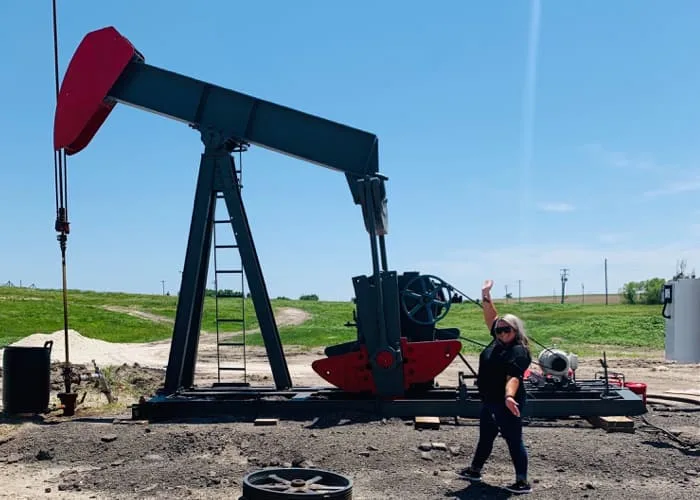
One thing that doesn’t change is making sure we spend a lot of hands-on time with customers, visiting manufacturing plants of all types across the country—food and beverage, automotive, pharmaceuticals. We’ve spent a lot of time in the oil fields in West Texas and Oklahoma as well as on-site with water utilities across the country. We joke on the team that it’s sort of a rite of passage to get your steel toe boots when you join because you need them for most Industrial on-site visits!
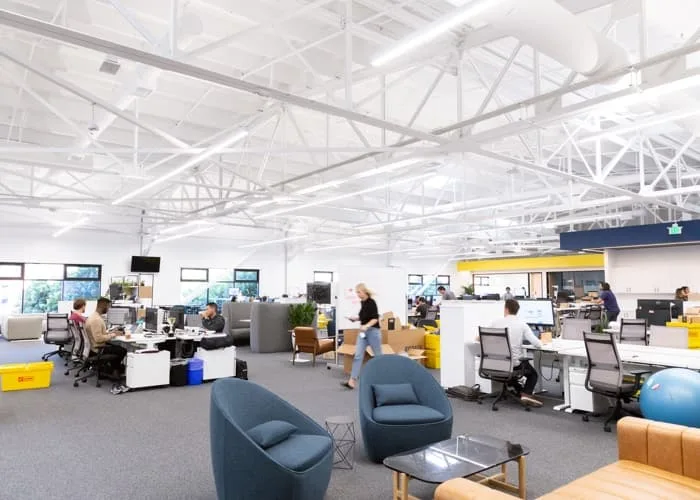
In terms of milestones, this week was actually a huge one! We moved into this shiny new office and it was a bit of a wake-up call for the whole team. It was like ‘Wow, we've built a lot over the past year!’ The move felt like a culmination of all the successes and really reinforced how far we’ve come along. That said, this is just the first step in a lot more to come.
8. I imagine it’s been helpful to have the existing resources of Samsara on your side during such a huge growth spurt. What have been the biggest benefits of being a subset of Samsara?
When you carve out a new division in a larger organization, you get a ton of help from the original team—specifically infrastructure and the engineering resources—not to mention a great reputation and brand known for innovation. This lets you move a lot faster than if you were a standalone startup.
For example, we get to use code and tools that the Fleet side of the business has built over the past four or five years. That let us leapfrog anything that might have been more time-consuming if we weren't part of Samsara. But at the same time, the team has the autonomy to choose to do things in a different way, if it works better for the customer set we’re going after.
9. With so many new products coming down the pipeline, I’m sure it’s important to test and optimize as much as possible. What does experimentation look like in Industrial?
As you can imagine, building industrial products in our San Francisco office space can be a challenge so it's important for us to spend a lot of time with customers. This means not only visiting their sites, but also making sure we get products in their hands quickly and spend time with them during the initial deployment. This allows us to secure feedback to make sure we're heading in the right direction. There really are no better experts than our customers.
And because it isn’t always practical to be on-site with a customer, we’ve also set up all sorts of conveyor belts in and around the office to emulate a manufacturing line, or tanks and pumps to mirror a remote water utility site. We’ll have different configurations of products on them, whether that's to take pictures with the camera or to use sensors to count the number of items going by. This helps us quickly understand what is and isn’t working; we’re constantly testing.
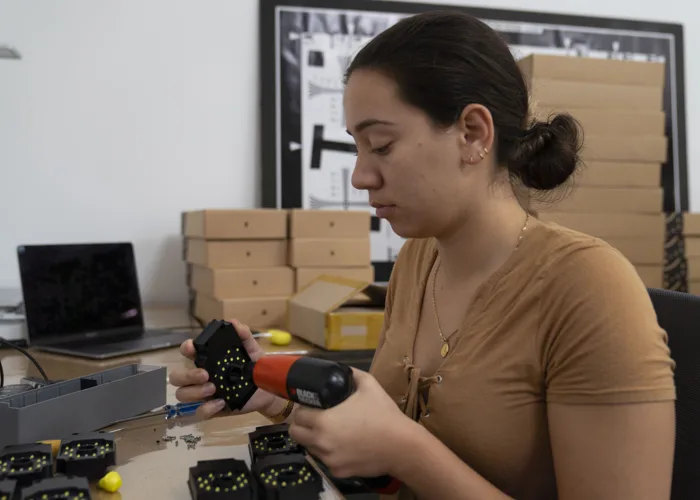
10. What’s the strangest product you’ve had in the office to use for experimentation?
There’s a steady stream of products coming into the office, especially since we’ve worked across a lot of verticals with our Machine Vision product. For all our early beta customers, we would go and buy a bunch of their products, bring them into our office, and run tests with the cameras to make sure we could get good images.
It’s always funny to walk into the Machine Vision testing room to see a hodgepodge of random products ranging from hand creams to pill packs to auto parts like spark plugs, all sitting side by side. I think the weirdest thing we had come through the door was a couple bags of raw chicken. It’s really indicative of how this technology can be used across a broad range of applications.
11. Looking ahead, what are you most excited about for the team?
When it comes down to it, this engineering team is pioneering a new vertical of Internet of Things—industrial IoT—in real time. They're tackling complex, but high impact problems that will set the foundation for not only products at Samsara but also the world of industrial IoT. It's a pretty cool thing to develop brand new products that will help companies sitting at the core of the economy take steps towards new levels of efficiency and sustainability.
If you’ve ever wanted to join a team of bright, curious people solving cool problems and pioneering new markets, take a look at our open positions at samsara.com/careers.
Get the latest from Samsara
Subscribe now